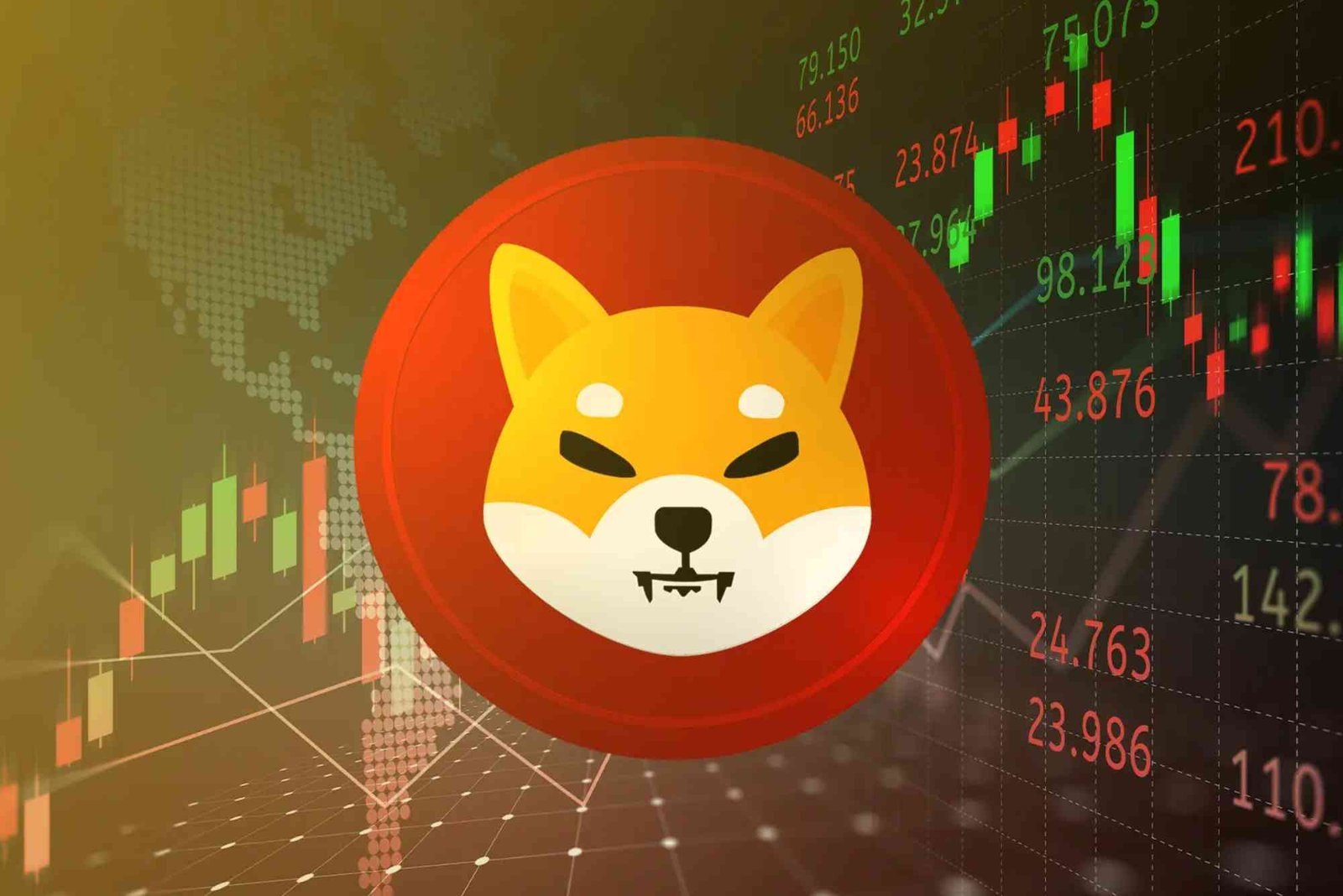Introduction
Cryptocurrency has become one of the most discussed financial innovations of the 21st century, with thousands of tokens emerging since Bitcoin’s debut. Among these digital assets, Shiba Inu has captured attention not only for its community-driven culture but also for its growing ecosystem. However, a question many investors and enthusiasts ask is — Is Shiba Inu a private cryptocurrency? This article explores the privacy level of Shiba Inu, how it functions, and what steps you can take to secure your holdings.
Understanding What Makes a Cryptocurrency “Private”
To understand whether Shiba Inu is a private cryptocurrency, it’s essential first to clarify what “private” means in the crypto world. A private cryptocurrency is one that focuses on user anonymity, transaction privacy, and untraceable activity on the blockchain. Coins like Monero (XMR) and Zcash (ZEC) are examples of privacy-focused cryptocurrencies. They use advanced cryptographic techniques such as ring signatures, stealth addresses, and zero-knowledge proofs to hide transaction details and wallet addresses.
In contrast, most cryptocurrencies, including Bitcoin, Ethereum, and Shiba Inu, operate on public blockchains. Every transaction made with these coins is recorded on a transparent ledger that anyone can view. While wallet addresses are pseudonymous (not directly linked to your name), the activity can still be traced using blockchain analysis tools.
Is Shiba Inu a Private Cryptocurrency?
The straightforward answer is no, Shiba Inu is not a private cryptocurrency. It is a token built on the Ethereum blockchain using the ERC-20 standard. This means that all Shiba Inu transactions are publicly visible and traceable, just like other Ethereum-based tokens.
Ethereum, by design, is a transparent network. Each transaction, wallet balance, and smart contract interaction is available for public viewing through blockchain explorers such as Etherscan. Therefore, anyone with the right tools can analyze Shiba Inu transfers, track wallet movements, and even link addresses with exchanges or known entities.
However, that doesn’t mean users have no privacy at all. Shiba Inu users can maintain a degree of pseudonymity, meaning that while wallet addresses are visible, the real identity behind those addresses is not automatically disclosed. But this level of privacy is limited and can be compromised if users connect their wallets to centralized exchanges requiring identity verification (KYC).
The Technology Behind Shiba Inu’s Transparency
Shiba Inu operates on Ethereum’s Proof-of-Stake (PoS) network, which records all activities in blocks verified by validators. Unlike privacy coins that obscure transaction data, Ethereum-based tokens like Shiba Inu record transparent metadata including sender and receiver addresses, transaction amounts, and timestamps.
This transparency promotes trust, reduces fraud, and allows developers and regulators to verify activity on the blockchain. Yet, it also means Shiba Inu lacks built-in privacy mechanisms. Users seeking anonymity must rely on additional tools such as decentralized exchanges (DEXs) or privacy wallets that offer enhanced obfuscation.
Why Some People Mistake Shiba Inu for a Private Cryptocurrency
Many users mistakenly think Shiba Inu offers privacy because it allows peer-to-peer transfers without banks or intermediaries. This independence gives the illusion of privacy, but it’s essential to note that privacy and decentralization are not the same. Shiba Inu is decentralized — no single entity controls it — but it is not anonymous.
The Shiba Inu ecosystem also includes projects like Shibarium, a layer-2 blockchain that improves scalability and lowers transaction fees. While it enhances efficiency, it doesn’t change the core privacy structure. Transactions are still recorded transparently and traceable on the public ledger.
Practical Tips for Protecting Your Privacy When Using Shiba Inu
Even though Shiba Inu is not a private cryptocurrency, there are effective steps users can take to protect their privacy:
Use Non-Custodial Wallets
Instead of storing your Shiba Inu tokens on centralized exchanges, consider using non-custodial wallets like MetaMask or Trust Wallet. These wallets give you full control over your private keys and reduce the risk of identity exposure through exchange data leaks.
Avoid Reusing Wallet Addresses
Each time you receive funds, use a new address if possible. Reusing the same wallet address can make it easier for third parties to track your transaction history and identify your patterns.
Use Decentralized Exchanges (DEXs)
Trading Shiba Inu through decentralized exchanges such as Uniswap or ShibaSwap enhances your privacy because DEXs do not require personal identification or KYC verification.
Employ Privacy Tools
Tools like Tornado Cash (though restricted in some jurisdictions) can mix Ethereum transactions to obscure their origin. However, it’s essential to stay compliant with your local laws before using such services.
Be Careful with Social Media and Forums
Avoid sharing your wallet address publicly. Many users unintentionally expose their financial details by posting their addresses or screenshots online, allowing others to trace their crypto holdings.
Comparing Shiba Inu with Private Cryptocurrencies
When comparing Shiba Inu to privacy coins, the differences become clearer. Monero and Zcash are designed from the ground up to ensure privacy. They hide sender, receiver, and transaction amount details through built-in privacy protocols.
Shiba Inu, on the other hand, focuses on community engagement, meme culture, and decentralized finance (DeFi) use cases rather than anonymity. It’s meant for open participation in its ecosystem, which includes decentralized exchanges, NFT projects, and staking opportunities.
Privacy Level:
-
Shiba Inu: Public and transparent transactions
-
Monero/Zcash: Fully private and untraceable transactions
Use Case Focus:
-
Shiba Inu: Community-driven, meme-based, DeFi ecosystem
-
Privacy Coins: Financial confidentiality and anonymity
The Benefits of Shiba Inu’s Transparency
While Shiba Inu’s lack of privacy may seem like a disadvantage, transparency can actually be beneficial. Open transactions foster trust among users, reduce fraudulent activities, and support regulatory compliance. Businesses and developers can analyze blockchain data to improve ecosystem performance and security.
Moreover, Shiba Inu’s transparency aligns with Ethereum’s broader goals — creating an open financial system accessible to everyone. Transparency also helps establish the legitimacy of cryptocurrency projects, encouraging mainstream adoption.
Security vs Privacy — Understanding the Balance
It’s important to differentiate between privacy and security. Shiba Inu may not be private, but it is secure when used responsibly. The Ethereum blockchain has strong cryptographic foundations that protect against hacking and double-spending. Users can further enhance security by safeguarding their seed phrases, using hardware wallets, and enabling two-factor authentication on exchange accounts.
Privacy aims to hide your identity and activity, while security protects your assets from theft or unauthorized access. When trading or holding Shiba Inu, focusing on both aspects is key.
So, is Shiba Inu a private cryptocurrency? The answer is no — but that doesn’t diminish its value or potential. It thrives on transparency, community engagement, and technological development rather than secrecy. While privacy coins have their niche, Shiba Inu stands out as a decentralized, transparent, and accessible digital asset for millions.
The Future of Shiba Inu and Privacy
As blockchain technology evolves, more projects are exploring ways to blend transparency with privacy. Shiba Inu’s developers may eventually introduce optional privacy features through its expanding ecosystem. However, any such addition must balance user privacy with regulatory compliance.
The Shiba Inu community remains one of the most active in the crypto world. Its future growth will depend on continued innovation, user trust, and strategic updates. Whether you are an investor or a casual enthusiast, understanding how Shiba Inu manages transparency can help you make informed decisions about its use.
As a responsible investor, always prioritize security and compliance while using privacy-enhancing methods responsibly. Whether you’re exploring DeFi opportunities or holding tokens for the long term, stay informed about the tools and risks involved.
For more insights into emerging digital assets and blockchain technology, check out this Related Cryptocurrency article or visit the official Is Shiba Inu A Private Cryptocurrency page to explore more guides. To stay updated on global crypto regulations, you can also Learn more through trusted official resources.
FAQs
1. Is Shiba Inu a private cryptocurrency like Monero?
No, Shiba Inu is not a private cryptocurrency. It is built on Ethereum, where all transactions are publicly visible and traceable.
2. Can I make my Shiba Inu transactions private?
While you can’t make them fully private, you can use non-custodial wallets and decentralized exchanges to reduce traceability.
3. What is the safest way to store Shiba Inu?
Hardware wallets like Ledger or Trezor are the safest options since they keep your private keys offline, reducing hacking risks.
4. Why does Shiba Inu not have privacy features?
Because it operates on Ethereum’s public blockchain, which prioritizes transparency and decentralization over anonymity.
5. Can authorities track Shiba Inu transactions?
Yes, law enforcement agencies can track transactions using blockchain analytics tools, especially when coins move through regulated exchanges.
6. Is it legal to trade Shiba Inu?
In most countries, trading Shiba Inu is legal. However, always follow your local financial regulations before investing.
7. Does Shiba Inu have its own blockchain?
Initially, Shiba Inu was purely an ERC-20 token on Ethereum. However, with Shibarium’s development, it now operates on its own layer-2 network while still relying on Ethereum’s base security.







